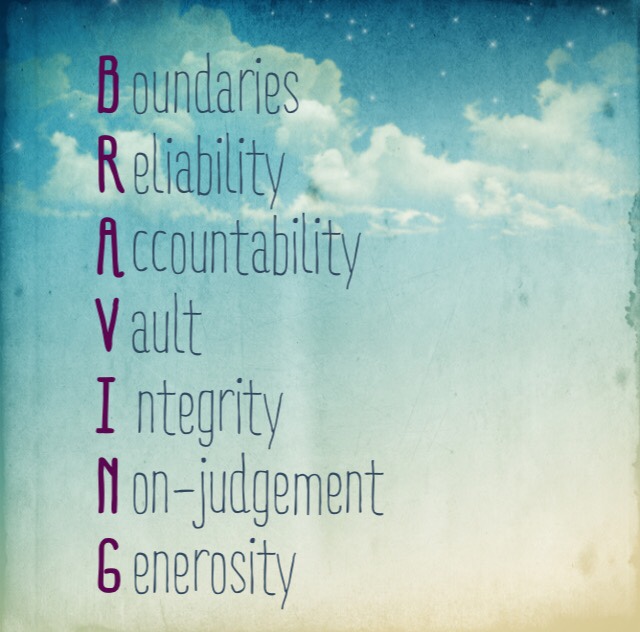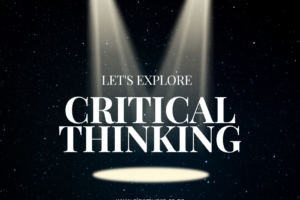What is critical thinking? When we hear the phrase ‘critical thinking’ we tend to assume…

7 Elements of Trust
In her book, Rising Strong, Research professor, Brene Brown, teaches an acronym, BRAVING, that she has created for remembering what she defines as the anatomy of trust. These 7 elements that make up trust are as follows;
- Boundaries
- Reliability
- Accountability
- Vault.
- Integrity
- Non-judgment
- Generosity.
Let’s look at each element in more detail.
Boundaries
You respect my boundaries and when you’re not too sure, you ask. You are willing to hold your own boundaries and to make those boundaries clear to me. You are willing to say ‘no’ and you are willing to accept ‘no’.
Reliability
Reliability means that you will do what you said you will do…over and over and over. You cannot earn or gain trust if you do something once, it takes regular and consistent actions. This means being aware of our strengths and limitations so that we don’t take on so much that we come up short and then don’t deliver or our commitments.
Accountability
I can only trust you IF… when you make a mistake, you are willing to own it, apologise for it and make amends. I can only trust you IF… when I make a mistake, I am allowed to own it, apologise for it and make amends. No accountability, no trust!
Vault
Being a vault means people can keep their valuables with you and you will keep them safe.
Being a vault involves not sharing information or experiences that aren’t ours to share. You keep my secrets and the secrets of others. A very key point about building trust is not telling the secrets of others. When you tell another person’s secrets, you are essentially showing me that you can’t be trusted to hold my secrets.
Integrity
Integrity means our actions match our words. According to Dr. Brown, you choose courage over comfort, you choose what is right over what is quick, convenient or easy, and you choose to practice your values and believes rather than simply professing them.
Non-Judgement
Non-judgment is refraining from judging either ourself or others. With non-judgment, I can ask for what I need, and you can ask for what you need. We can talk about how we feel without judgment.”
Generosity
When applying Generosity you are attempting “to extend the most generous interpretation possible to the intentions, words, and actions of others”. This is assuming the best of others.
How to cultivate self-trust
Dr. Brown shares the following 7 questions as a tool for assessing our level of self-trust. I have found this to be a great tool for post reflection after an event and often will highlight some areas which could have been handled differently. This quick checklist alone provides you with a nifty toolkit for going back in (to the conversation).
B – Did I respect my own boundaries? Was I clear about what’s okay and what’s not okay?
R – Was I reliable? Did I do what I said I was going to do?
A – Did I hold myself accountable?
V – Did I respect the vault and share accordingly?
I – Did I act from my integrity?
N – Did I ask for what I needed? Was I nonjudgemental about needing help?
G – Was I generous towards myself? Was I generous towards others?
This article was written in acknowledgment of the wisdom, efforts and tireless dedication of brenebrown to her research around vulnerability, trust, and shame. Her decades of work highlight just how powerfully these emotions play a part in effective communication and courageous conversations within all areas of our lives.



